Search Our Whole site:
Just Search: Mongolia
An online launch of the AT2030 Inclusive Infrastructure Case Study in Ulaanbaatar, Mongolia.
On Thursday May 6th an online launch event was held, bringing together key stakeholders in the domains of disability inclusion and inclusive design and urban development in Mongolia.
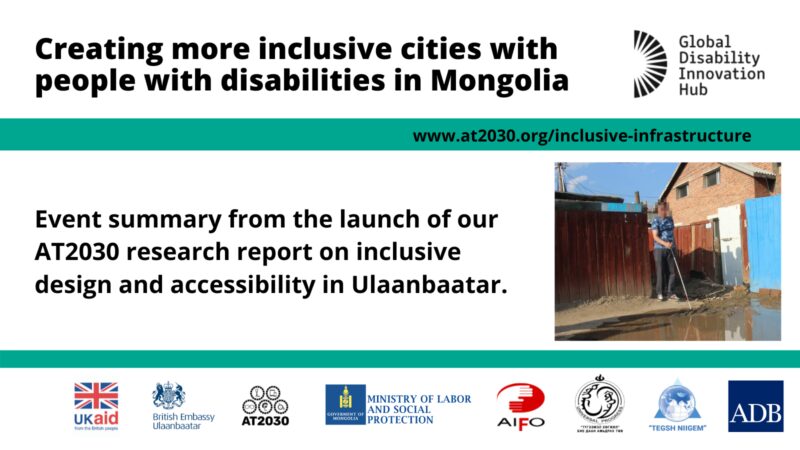
Webinar summary: launch of the AT2030 Inclusive Infrastruture Case Study in Ulaanbaatar, Mongolia
The webinar summary and recording of the Inclusive Infrastruture Case Study in Ulaanbaatar, Mongolia
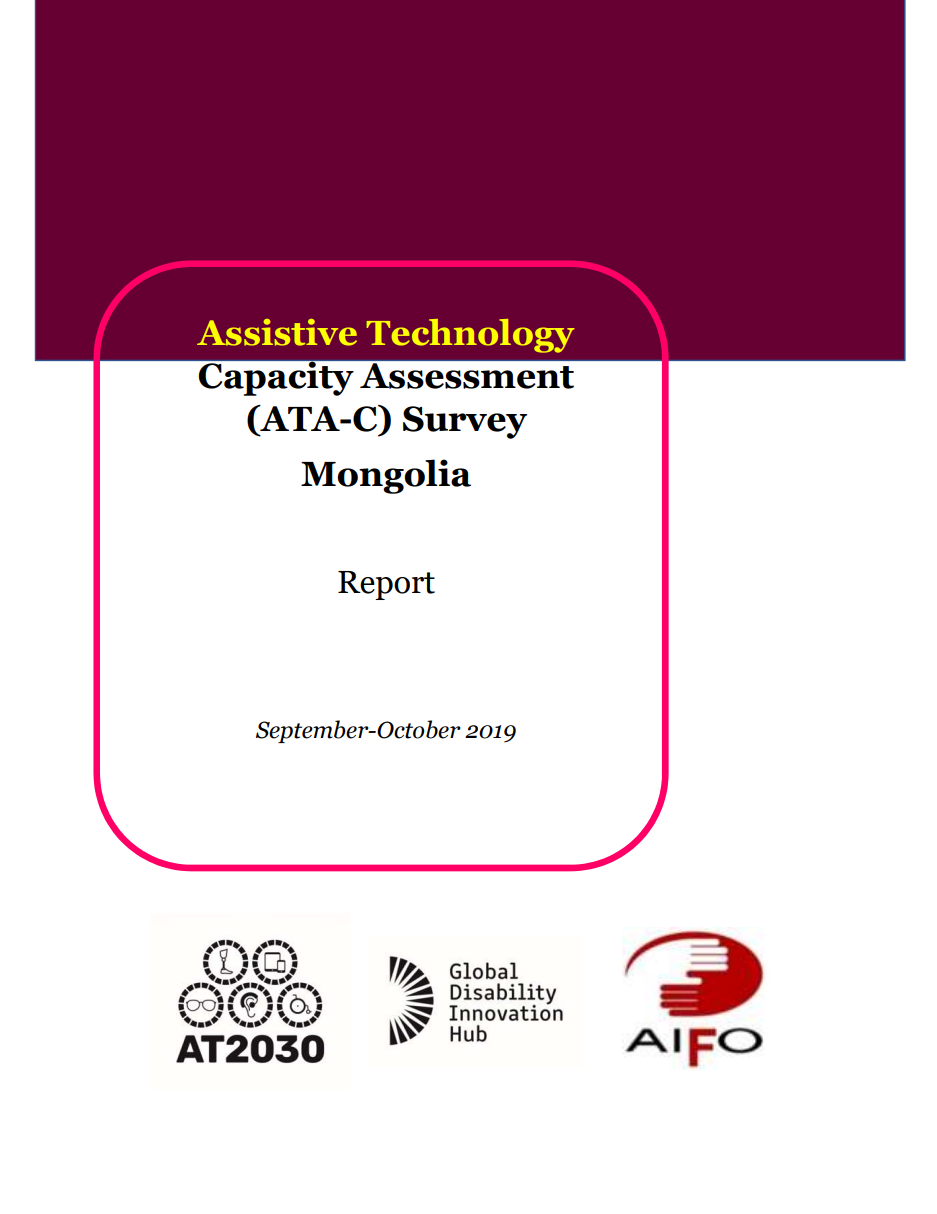
Assistive Technology Capacity Assessment Survey Mongolia Report
Assistive Technology Capacity Assessment (ATA-C) National Survey was carried out in September-October 2019 by Dr. Sunil Deepak, consultant of Italian Association Amici di Raoul Follereau (AIFO), in collaboration with Tegsh Niigem (Mongolia), with technical support of the AT2030 team of the World Health Organisation (WHO) and with funding from Global Disability Innovation (GDI) Hub, UK. This survey was the first step in the effort to improve and strengthen the Assistive Technology (AT) services in the country.
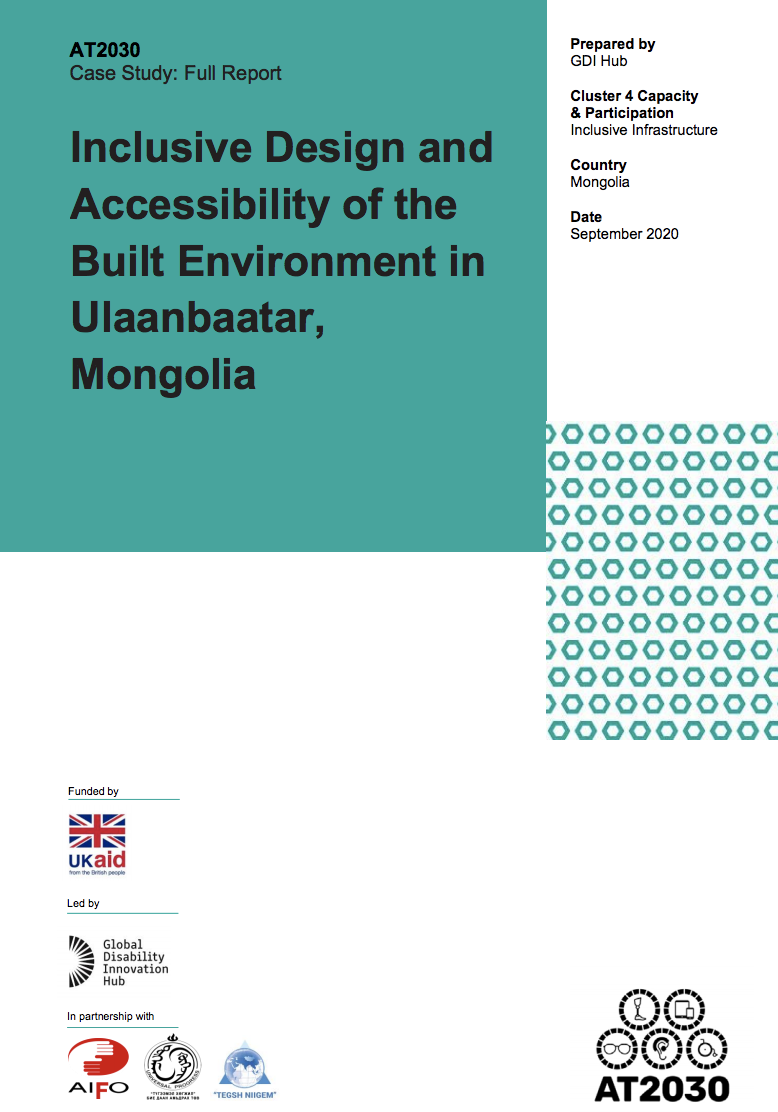
Inclusive Design and Accessibility of the Built Environment in Ulaanbaatar, Mongolia
The Global Disability Innovation Hub (GDI Hub) is launching the first case study on Inclusive Infrastructure in Ulaanbaatar, Mongolia. GDI Hub worked with AIFO, Tegsh Niigem and Universal Progress ILC conducting research on the state of accessibility and inclusion in the built environment. This case study is part of a series of six global case studies.
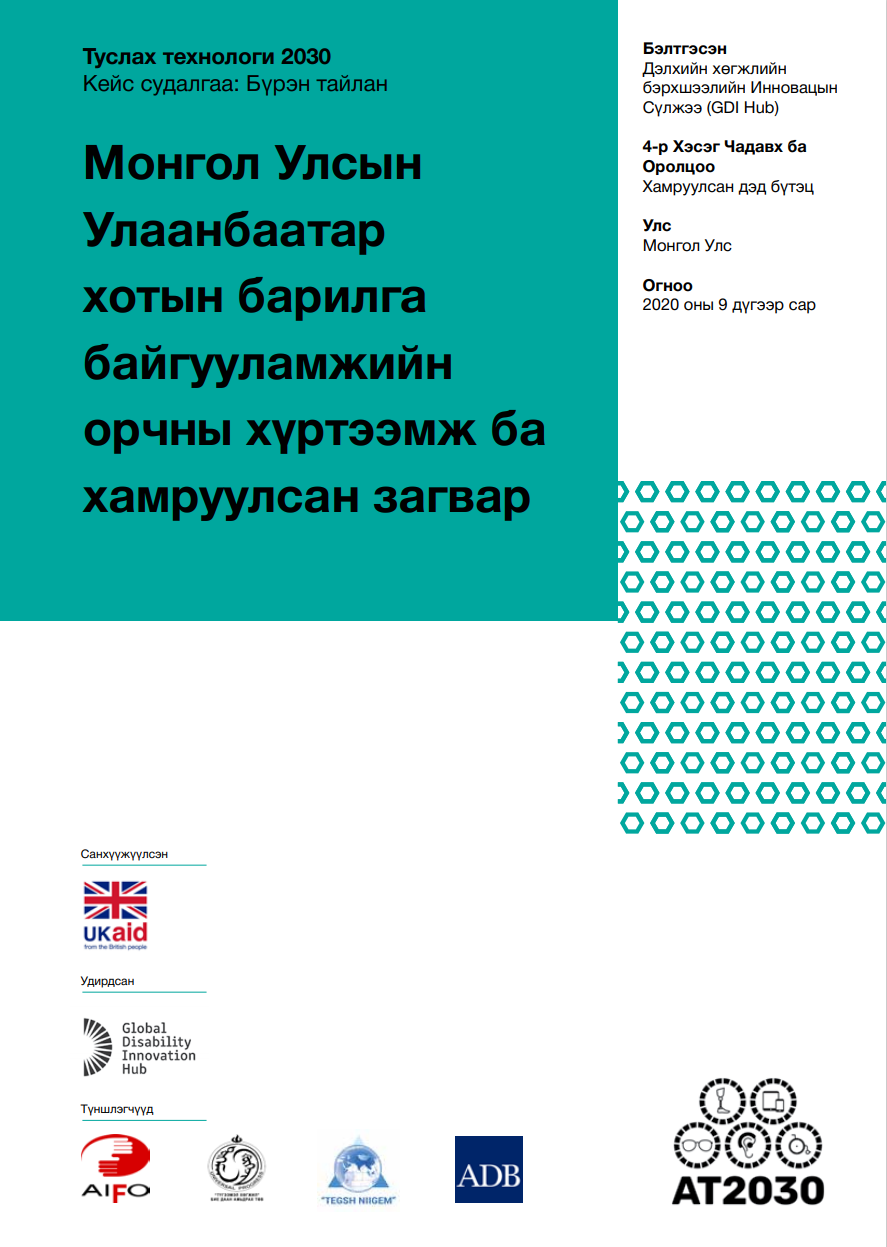
Inclusive Design and Accessibility of the Built Environment in Ulaanbaatar, Mongolia in Mongolian
Inclusive Infrastructure in Ulaanbaatar, Mongolia - case study in Mongolian
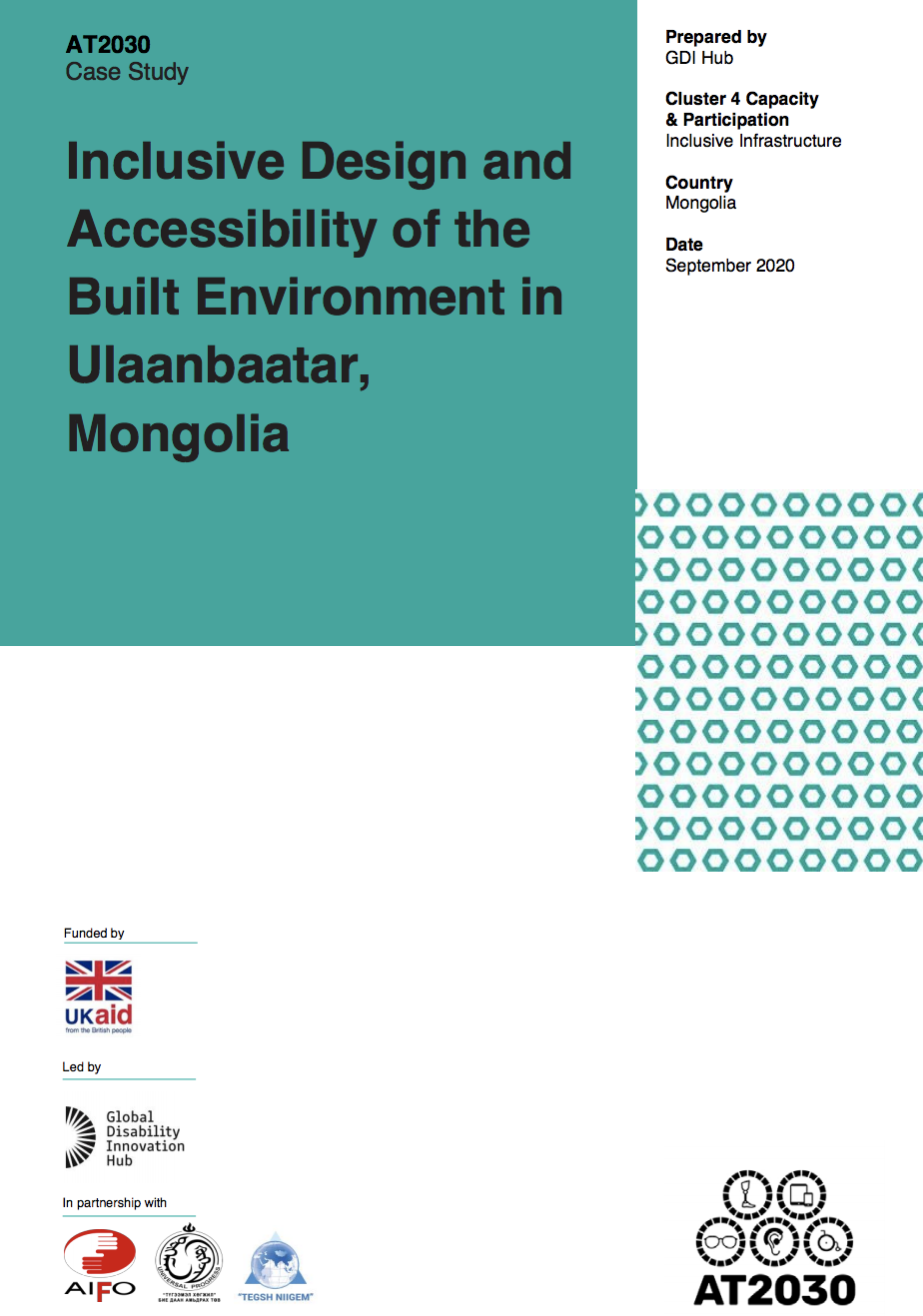
Summary of Inclusive Design and Accessibility of the Built Environment in Ulaanbaatar, Mongolia
This is the summary of the first report of the Inclusive Infrastructure case studies on Ulaanbaatar in Mongolia.
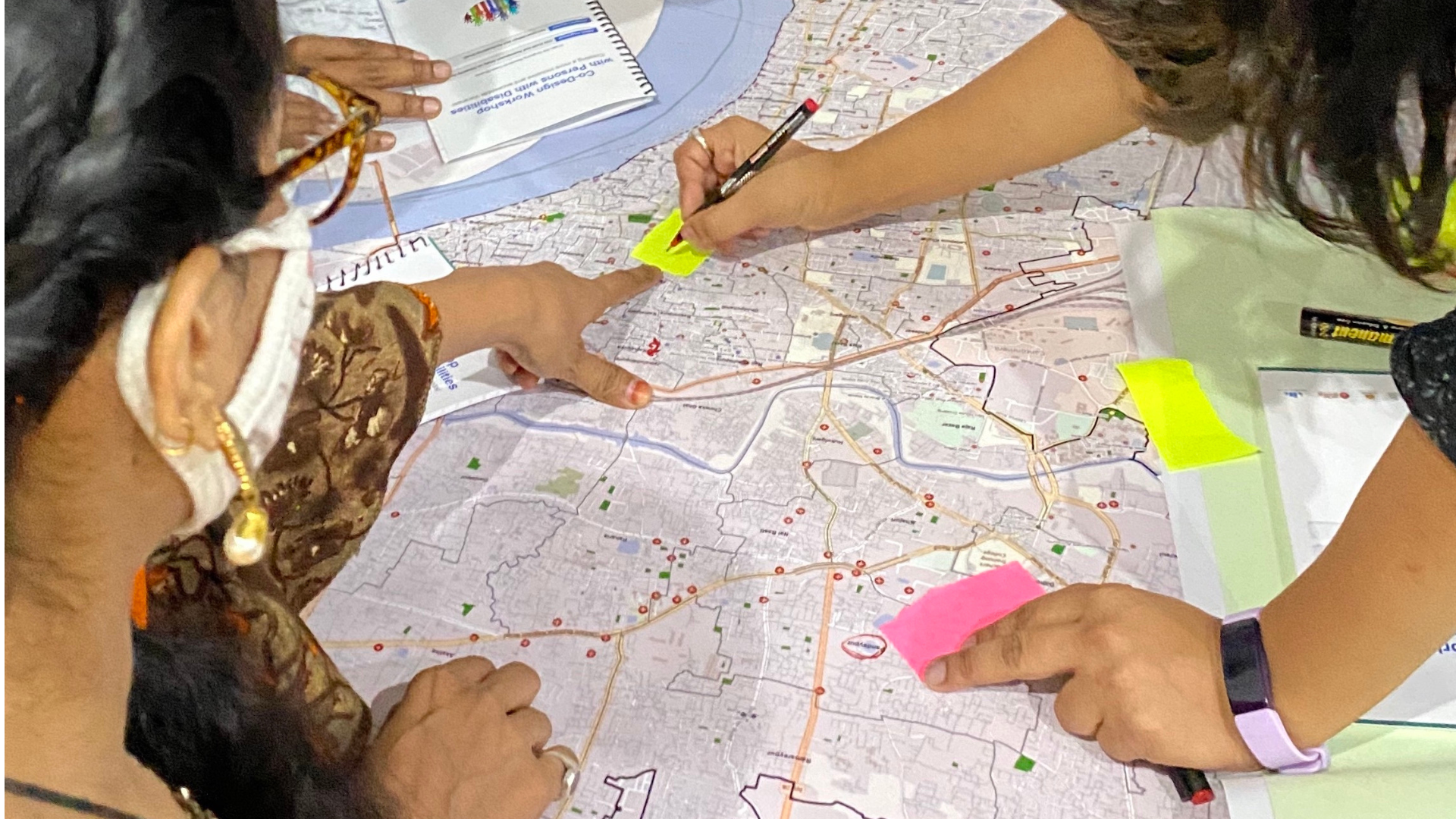
Inclusive Design Research in a Pandemic: Working Remotely in Ulaanbaatar, Mongolia
The Inclusive Infrastructure sub-programme obegan in March 2020, right out the outset of the COVID-19 pandemic. Over three years this part of the AT2030 programme will be conducting case studies in six cities on the current state of accessibility and inclusion of the built environment in each of those places. Our aim is to build a picture of what inclusive design ‘looks like’ in each city. Find out more about our first case study in Ulaanbaatar, Mongolia
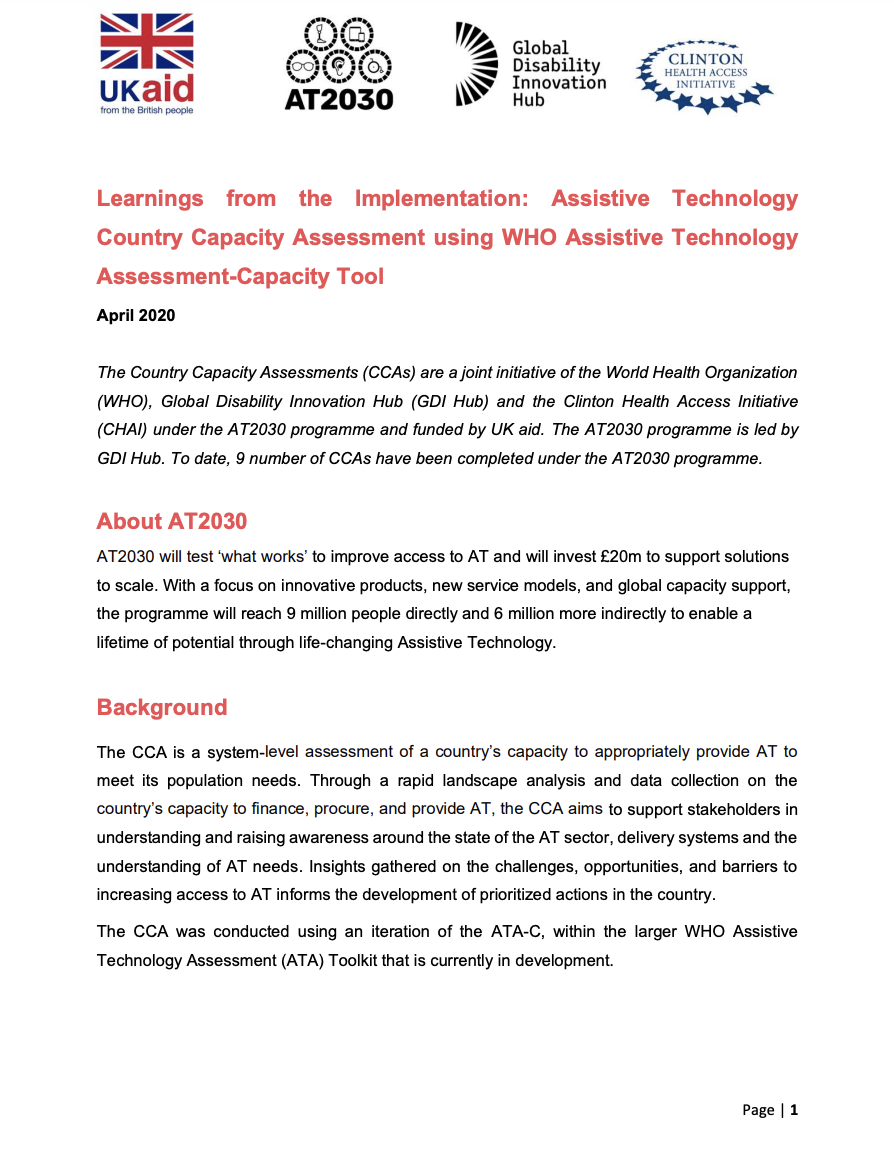
Learnings from the Implementation: Assistive Technology Country Capacity Assessment using WHO Assistive Technology Assessment-Capacity Tool
This draft was prepared by the Clinton Health Access Initiative (CHAI)
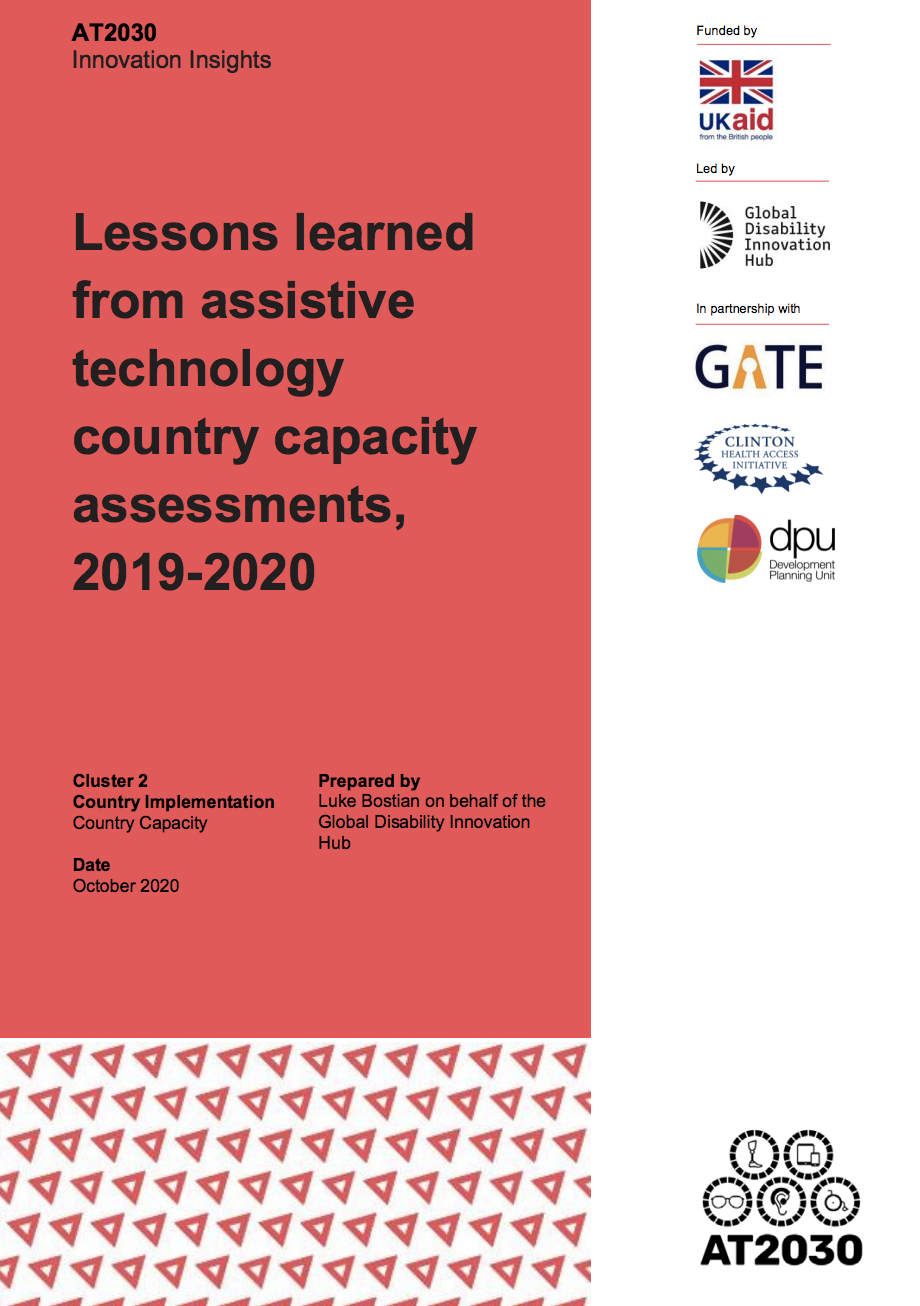
Lessons learned from assistive technology country capacity assessments 2019/2020
The purpose of the CCAs is to “capture a high-level understanding of the often-fragmented AT sector in a country or region,” helping raise awareness about AT gaps and opportunities and contributing to advocacy and policy and program development. One year after the first CCAs began, GDI Hub commissioned research into lessons learned so far and recommendations for how the tool and process might be improved in the future.